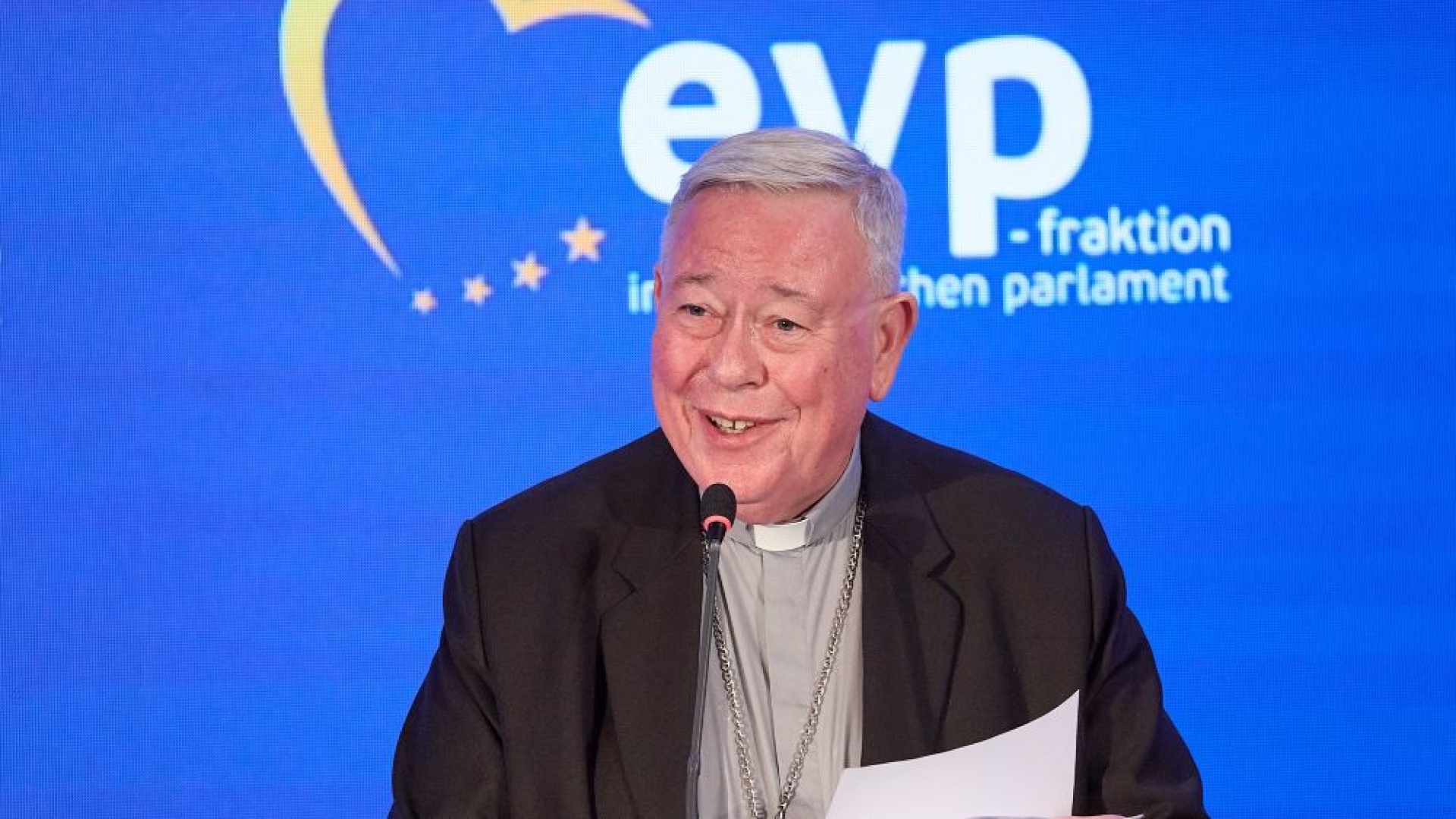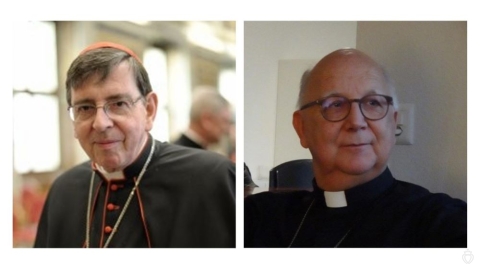Is the Synod Slowing Down?

Cardinal Jean-Claude Hollerich
Chi va piano, va sano e va lantano. [Slow and steady wins the race.] While the episcopal conferences are making summaries of local consultations on the five continents as part of the Synod on Synodality, the Vatican is showing its desire to slow down in order to avoid new fractures in the Church.
Will the Synod work toward moderation? A first indication in this direction came from one of the organizers of the monumental assembly which must set the course for the future of the Church. It is a course which until now has seemed quite far from the one that was set by its divine Founder.
On May 17, 2024, Cardinal Jean-Claude Hollerich, Relator General of the Synod, was interviewed on the official portal of the Swiss episcopate, kath.ch, and it was not encouraging, notably in what concerns women’s access to major orders, one of the main symbols of progressivism. It’s important to note that this is more or less the only thing which interested the journalist who interviewed him.
This deceleration seems above all motivated by the fear of seeing the gap widen between Catholics of an increasingly secularized Europe and those of the African continent, much less receptive to Western progressivism.
Those who want women’s access to major orders “are coming from from a typically European conception of the individual. Many societies do not think this way at all, the community taking precedence over the individual. And I would like to point out that today, in the Church, many consider such a position neocolonialist,” the cardinal explains in this interview.
He continues: “We must be very careful not to trigger an enormous counterattack. We are a universal Church in which we must take into consideration different mentalities. We must have the conversations with the whole Church, at the risk of seeing her disintegrate.”
These fears are justified by the vigorous and faith-filled way in which the African episcopates reacted to the Declaration Fiducia supplicans authorizing the blessing of couples that are irregular regarding the morality and law of the Church: “I believe that a storm would break out on other continents if she introduced the female priesthood tomorrow,” the cardinal again explains.
The Synod Relator elaborates on the consequences: “The Vatican would have to backtrack. Already with Fiducia supplicans, there was an enormous wave of indignation. And yet, it was not a question of recognizing homosexuality, but only of blessing irregular couples,” explains the man who is, as is well-known, one of the champions of the current progressivism.
Furthermore, Cardinal Hollerich expresses his wish that women will one day be able to access the priesthood, which is a matter of “time” or acceptability. But there is no question of fully pressing the brakes: “It is important that women first of all access more responsibilities, it’s important to be careful and take one step after another,” he believes.
Another sign of this phase of synodal deceleration: the interview granted by Pope Francis to CBS News and broadcast on May 21: FSSPX.News has already commented on the “No, but” of the Argentine Pontiff regarding the diaconal ordination of women.
The same desire to calm things down is noticeable in the astonishing visit of Cardinal Víctor Manuel Fernández to Cairo to meet the “pope” of the Coptic Orthodox Church: the Prefect of the Dicastery for the Doctrine of the Faith (DDF) went to see Tawadros II in order to minimize the impact of Fiducia supplicans, whose publication threatened relations--strategic from numerous points of view, if only for Vatican diplomacy--with the Coptic world, a visit reported by cath.ch.
It was a wasted effort: “At the end of this meeting with the Prefect of the DDF, the Coptic Church published a report duly recording the cardinal’s statements. It reiterates, however, the wish of Tawadros II ‘to evaluate’ the theological dialogue between the two Churches--initiated in 2004--and to ‘develop more effective methods’,” according to cath.ch. An outright dismissal which could make Rome think.
(Sources : kath.ch/cath.ch/FSSPX.Actualités – FSSPX.Actualités)
Illustration : Flickr / EPP Group (CC BY-NC-ND 2.0 Deed)





